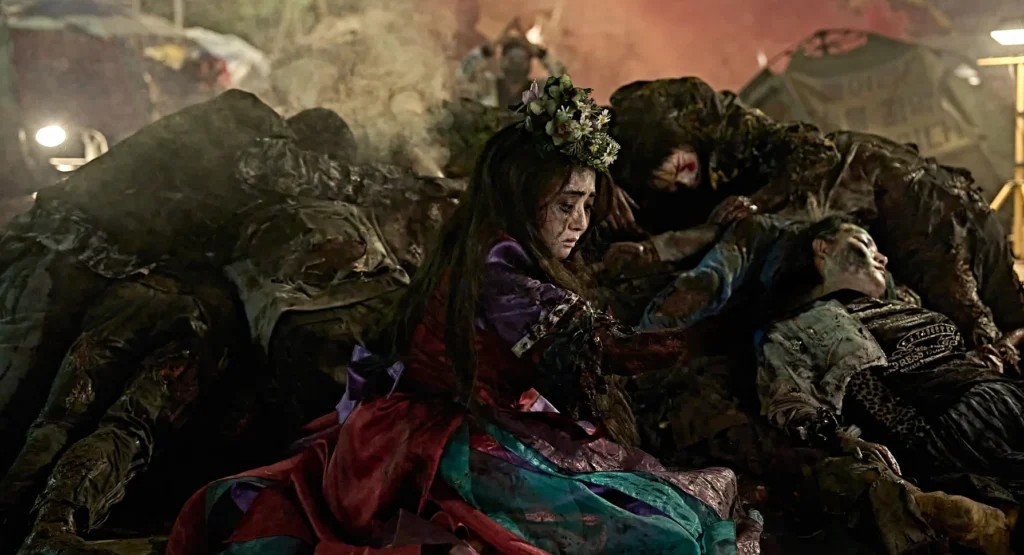Summary
Without a doubt, Hellbound is one of the best Korean dramas Netflix has to offer.
When I watched Hellbound back in 2021, I insisted that there must be a Season 2. I carefully compared it to Kingdom, stating that if the writing continues to evolve, it could be a once-in-a-generation achievement. While Kingdom has a historical backdrop, I believe Hellbound could have a similar impact with a modern idea.
But then it went quiet: I’m not the type of person who keeps track of when series are renewed (though I should, considering I am an entertainment journalist), so Hellbound became a fleeting memory. In fact, when I saw the schedule for Season 2, I almost forgot about this hidden gem.
I sincerely believe 3-year gaps between seasons are far too far apart, mainly because audiences quickly move on, and it’s harder to keep writing sustainable. However, Hellbound Season 2 does not sweat it at all. It feels like the team behind the series continued to write regardless of the renewal status.
After the events at the end of Season 1, Season 2 ties in brilliantly, bringing Jung Jinsu’s fate into the mix after his decree with the executors was kept quiet. The end of Season 1, Episode 3, is given more context at the start of Season 2. The writers really did storyboard this entire narrative experience.
The second season continues to delve into the chaos caused by the executors who cause tragedies on Earth. With the influence of the New Truth diminishing, Arrowhead is causing anarchy on the streets; they do not fear the police or the government—they are in complete control, and a future where people are not governed looks likely.
Season 2 sees a stronger government position, whereby they are required to provide a solution between Sodo, the New Truth, and Arrowhead to maintain control. Paralleling all this are resurrections, which change the state of the game entirely; Park Jungja has resurrected, but so has Jinsu, though secretly. A resurrection provides the opportunity for a new narrative, a new God’s will.
I expected Hellbound Season 2 to decrease in quality and stature due to the long wait, but it does the opposite. Not only does it excel over its predecessor, but it manages to deepen the ideological themes and connections in the story to a new level. It dabbles in conspiratorial storytelling, where governments prefer controlled chaos and division over peace. It pushes a proposal that religion and secular powers are equally as detrimental to each other.
Of course, this is a riveting K-Drama with plenty of savoring action, which only enhances the quality, but the series does not falter in its messages. It stays on a journey where the characters seek purpose, not truth, in a world where the answer is uncertain. Hellbound purposely allows the characters to be in a state of confusion; knowledge is valuable, but information is power-dependent on their view of the world.
Melding together religious and political ideologies can quickly weaken in fictional series, but it does not here. It paces towards a world torn apart, losing purpose amongst its people. Whether or not the series displays God’s will hardly matter at this stage, and that’s Season 2‘s most powerful message.
Read More: Hellbound Season 2 Ending Explained




